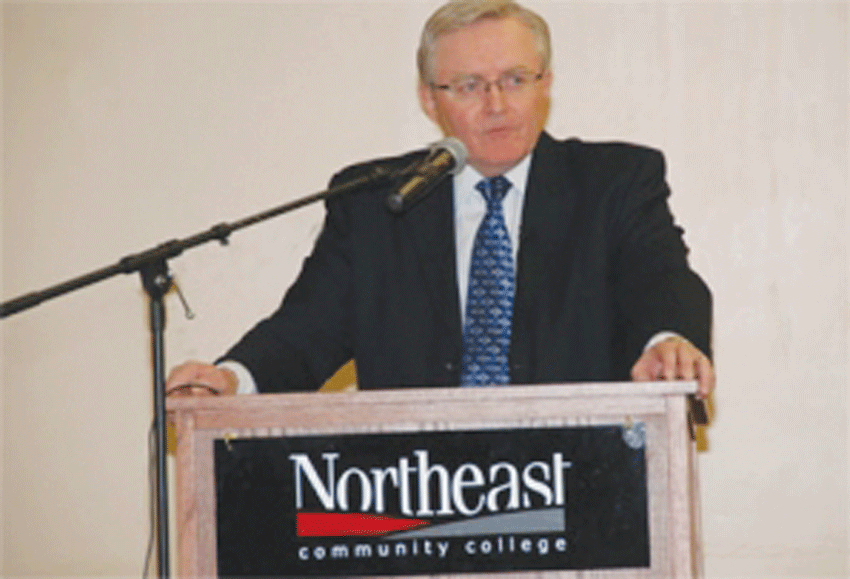Northeast Community College President Michael R. Chipps, Ph.D., has been named to a national team charged with helping American community colleges redesign, reinvent, and reset their direction to better serve students today and for decades to come.
The charge follows publication last April of a report commissioned by the American Association of Community Colleges (AACC). The report, Reclaiming the American Dream: Community Colleges and the Nation’s Future, was written by the 21st Century Commission on the Future of Community Colleges, a blue-ribbon commission of community college leaders and supporters.
The report was released at last spring’s annual meeting of the AACC in Orlando. It includes seven recommendations on how to redesign students’ educational experiences, reinvent institutional roles and reset the system.
Dr. Chipps will join 104 community college leaders from across the country that will be divided in to nine different teams. He will serve on the Accountability Team. That team is charged with implementation of policies and practices that promote rigor, transparency and accountability for results in community colleges.
The team will also implement a voluntary framework of accountability for nationwide use and develop stronger approaches to measure student learning and employment-related outcomes. The group is also challenged to establish a state data system to track students on their educational and career paths. That statewide system can demonstrate employment- and wage-related impacts of a community college education.
The Accountability Team is also asked to work simultaneously with states, funders, and national associations to develop a concise set of indicators of student progress and success.
Dr. Chipps said the work of the 21st Century Commission will be fulfulling, meaningful and visionary for America’s nearly 1,200 community colleges. “While it is an honor to be named to a national taskforce by the American Association of Community Colleges, this work will be challenging, but greatly rewarding,” he said. “The report that was released last April took a visionary look at what community colleges are doing well and not doing as well.”
“As leaders of the 21st Century Commission, we are charged with analyzing and recommending new approaches to education and training through our community colleges. What a great opportunity to be at the forefront of the conversations about America’s community colleges, which now enroll nearly half of all students in higher education in the country.”
Dr. Chipps noted that the Reclaiming the American Dream report challenges community colleges to increase completion rates by 50 percent by 2020 and cut by half those students entering college needing remedial classes. Community colleges are also encouraged to close the American skills gap with a sharp focus on career and technical education.
The report further recommends that community colleges refocus the college mission and redefine institutional roles to meet 21st century education and employment needs. Community colleges are also advised to invest in support structures to serve multiple colleges through collaboration and with partners in philanthropy, government, and the private sector.
It also suggests institutions target public and private investments strategically to create new incentives for support of community colleges.
In September, members of the implementation teams will begin to develop strategies on how community colleges can integrate the recommendations in the report. The strategies developed by the implementation teams will be forwarded to a steering committee. The steering committee will then present a final report to AACC President and CEO Walter Bumphus, Ph.D.
“While some may have found the Reclaiming the American Dream report a bit daunting,” Dr. Chipps said, “it will become a guiding strategic tool for most colleges. Not only does it address our challenges, but it presents us with opportunities of great potential and promise. America’s community colleges continue to be at the forefront of the American higher education system and it is supported in part by the work of the 21st Century Commission.”



